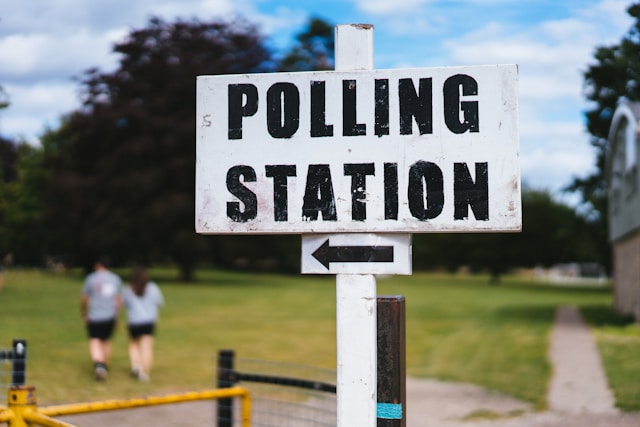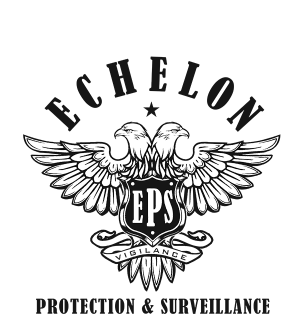 Polling stations are vital to democracy, allowing citizens to exercise their right to vote. However, in today’s political climate, these sites have become potential soft targets for intimidation, unrest, and even violence.
Polling stations are vital to democracy, allowing citizens to exercise their right to vote. However, in today’s political climate, these sites have become potential soft targets for intimidation, unrest, and even violence.
As a result, armed security guards are increasingly essential at polling locations to protect voters, staff, and the integrity of the electoral process. Without adequate security, polling stations are vulnerable to disruptions that could undermine confidence in elections and jeopardize public safety.
Security Guards Can Help with Access Control
One of the primary responsibilities of armed security guards at polling stations is to control access. Polling stations are typically open to the public, often in schools, community centers, or churches, making it easy for large groups to gather. Unfortunately, this accessibility also makes it easier for unauthorized individuals or groups to enter and potentially disrupt the voting process. Armed security guards can manage entry points, ensuring that only registered voters and authorized personnel are allowed into the polling area.
By closely monitoring entrances and exits, security guards prevent overcrowding, maintain orderly lines, and help avoid any disturbances that might arise from unauthorized individuals attempting to gain access. Access control is particularly crucial in areas where there is heightened political tension or a history of protest activity near polling places.
Security Guards Can Diffuse Tense Situations
With increased political polarization, polling stations can become sites of tension. Disagreements between voters, heated discussions, or even coordinated efforts to disrupt voting can escalate into confrontations. Armed security guards are trained to identify and de-escalate these situations before they spiral out of control.
Guards are equipped with conflict resolution skills, allowing them to intervene early, prevent altercations, and maintain a peaceful environment for voters. Their presence alone can be a deterrent to anyone considering causing a disturbance, as it communicates that there will be immediate consequences for aggressive or disruptive behavior.
Security Guards Can Protect Workers from Harm
Election workers are essential to the smooth operation of polling stations, yet they are increasingly facing threats and intimidation. According to recent studies, many election officials and volunteers report feeling unsafe in their roles due to the rising incidents of violence and harassment surrounding elections.
Armed security guards provide a vital layer of protection for these workers. Their presence reassures election staff that they can perform their duties without fear of harm. Armed security personnel are trained to respond swiftly in case of an altercation or direct threat to an election worker, ensuring that both staff and voters remain safe. This allows poll workers to focus on facilitating the voting process rather than worrying about their safety.
Security Guards Can Work with Police
Armed security guards are not a replacement for law enforcement but act as a crucial supplement to police presence at polling stations. In many areas, local police may not have the resources to station officers at every voting site, especially in larger cities or rural areas with multiple polling locations. Security guards fill this gap by working alongside local law enforcement to ensure a coordinated response to any security threats.
In the case of a serious incident, such as an active shooter or a violent protest, security guards can act as the first line of defense while waiting for police backup. Their training in emergency response ensures that they can act quickly and effectively, potentially saving lives and preventing further escalation until law enforcement arrives.
What Other Measures Can Polling Stations Take to Increase Security?
In addition to hiring armed security guards, polling stations can implement several other measures to enhance security. These include:
- Layered security measures: Creating multiple security checkpoints leading up to the polling area can help deter potential troublemakers. Visible security, such as patrol vehicles or surveillance cameras, can also discourage criminal behavior.
- Emergency planning: Polling stations should have clear protocols for responding to various emergencies, including threats of violence, bomb scares, or natural disasters. Staff and security personnel should be trained on evacuation procedures and communication plans to ensure a swift response.
- Clear communication with voters: Informing the public about security measures ahead of time can help reduce anxiety and ensure that voters know what to expect on Election Day. Clear signage and designated waiting areas can also help maintain order and reduce the likelihood of confrontations.
Protect Your Polling Station With EPS
In an increasingly polarized political environment, ensuring the safety and integrity of polling stations is more important than ever. Armed security guards play a vital role in maintaining access control, diffusing tense situations, protecting workers, and coordinating with law enforcement. Get the protection you need by speaking with EPS today.


